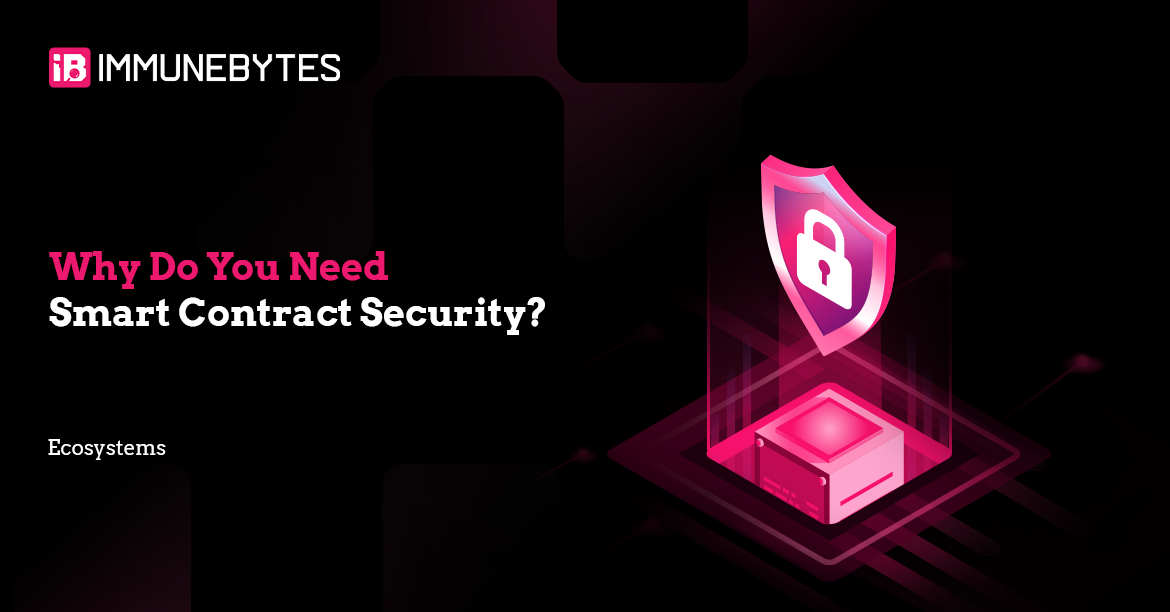Smart contracts are a ground breaking innovation in the rapidly evolving world of blockchain technology. These are essentially self-executing contracts with predefined rules are transforming industries by eliminating intermediaries and enhancing efficiency. However, with great power comes great responsibility.
Ensuring the security of smart contracts is not just an option—it’s a necessity. Here’s why:
1. The Immutable Nature of Blockchain
One of the fundamental features of blockchain technology is its immutability. Once a smart contract is deployed on a blockchain, it cannot be altered. While this feature guarantees transparency and trust, it also means that any vulnerabilities or coding errors in the smart contract become permanent. Such issues can lead to catastrophic losses, as hackers can exploit these flaws to siphon funds or disrupt operations.
2. High Stakes: Financial and Reputational Risks
Smart contracts often manage significant amounts of user funds, making their security critical. A single vulnerability can lead to the loss of users’ assets, severely damaging trust in the project. When user funds are involved, the stakes are even higher—any breach can result in not only financial losses but also irreparable harm to the project’s reputation. Ensuring robust security measures is essential to safeguard user assets and maintain credibility in the ecosystem.
3. Increasing Complexity and Sophistication
As smart contracts evolve, they are becoming more complex and sophisticated. This complexity increases the likelihood of coding errors and unintended behaviors. Advanced attackers continually devise new methods to exploit these intricacies, making rigorous security measures indispensable. Cherry on the top: composability in blockchain protocols—where one bug in an underlying app can lead to losses across all applications built on top of it.
4. Rising Incidents of Exploits
The blockchain space has witnessed numerous high-profile smart contract exploits, such as the DAO hack and recent DeFi breaches. These incidents highlight how even minor errors in smart contract logic can result in significant losses. The growing number of attacks underscores the need for comprehensive security audits and best practices.
5. Regulatory and Compliance Requirements
As blockchain technology gains mainstream adoption, regulatory bodies are paying closer attention to its security standards. Projects that fail to implement robust security measures may face legal challenges or struggle to comply with evolving regulations. Prioritizing security demonstrates commitment to protecting users and maintaining compliance.
6. Building User Trust
Security is the cornerstone of trust in the blockchain ecosystem. Users and investors are more likely to engage with projects that demonstrate a strong commitment to safeguarding their assets. A secure smart contract not only protects against potential attacks but also enhances the project’s credibility and user confidence.
7. Cost-Effectiveness
Addressing security vulnerabilities post-deployment can be far more expensive than preventing them during the development phase. Investing in rigorous security audits and tools early on reduces the risk of costly breaches and ensures smooth project operations.
How to Secure Your Smart Contracts
- Conduct Comprehensive Audits: Engage experienced security auditors to review your smart contracts for vulnerabilities and logical flaws.
- Follow Best Practices: Adhere to industry standards and best practices in coding and development.
- Implement Rigorous Testing: Perform extensive testing, including unit testing, integration testing, and simulated attack scenarios, to identify and address potential vulnerabilities.
- Use Formal Verification: Leverage tools to mathematically verify the correctness of your smart contracts.
- Bug Bounties: Encourage ethical hackers to identify potential vulnerabilities by offering incentives.
- Stay Updated: Keep abreast of the latest developments in blockchain security and continuously update your protocols.
Conclusion
Smart contract security is not a luxury but a necessity in today’s blockchain-driven world. By prioritizing security, you not only protect assets but also foster trust, ensure compliance, and build a strong foundation for long-term success. Whether you’re developing a DeFi protocol, NFT marketplace, or any other blockchain application, make security your top priority—because in the world of decentralized technology, prevention is always better than cure.

